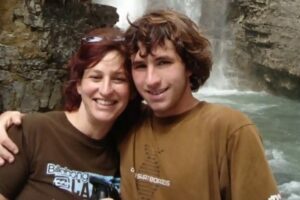From The Guardian: “Psychosis is often thought to be genetic, or a symptom of brain chemistry gone awry, which is what I was led to believe for much of my journey through the traditional mental health system. Zach’s first diagnosis was psychosis NOS (Not Otherwise Specified), a vague kind of darned if I know description. Later, depending upon which doctor he saw, he was classified with either schizophrenia, paranoid schizophrenia, depression with psychotic symptoms or, more recently, schizoaffective disorder.
These labels plucked from the Diagnostic Statistical Manual of Mental Disorders (DSM), a text often referred to as the bible of psychiatry, felt more distracting than helpful, masking a deeper truth about what had happened to Zach and our family. They ignored larger questions that were messy and ambiguous . . .
. . . I craved solutions, and the more I searched the more confused I became. First, I discovered that no disease markers show up in brain scans or blood tests for any of these so-called disorders. Nobody seems to know for sure what is really going on, which feels more like a spin-the-bottle game than science. I also came to understand that the effects of the antipsychotic drugs were intolerable for Zach, far worse than the symptoms that they were meant to alleviate.
I recall the way his shoulders slumped when I held out the pills and a glass of water to him each day. ‘They make me feel emotionally numb,’ he said. ‘I can’t live like this.’ One evening he pushed the drugs back at me, held the water glass to my chin and said: ‘If they are that great, why don’t you take them?’
. . . Over eight years in the US, Zach was detained in the psych ward several times, for up to three or four weeks each time. His despair earned him the label non-compliant. When he was forced to comply and the drugs still didn’t work, he was classed as treatment-resistant. Talking therapy was not offered on any of his acute psychiatric wards. This is not uncommon in inpatient systems: patients who are deemed to be actively psychotic or who are hearing voices are considered too unwell to benefit. This relatively modern view has developed alongside the rise of the pharmaceutical industry and the belief that altered states are a disease rather than a process or response to trauma resulting from difficult life events.
This is not the case everywhere. In Finland, a more radical understanding of extreme distress led to a programme called Open Dialogue which aims to avoid hospitalisation and medication with therapy that revolves around families and other networks, and involves contact, preferably in the person’s home. It has contributed to lowering the suicide rate in Finland; one of the highest in the world in the 1990s, it has dropped by 50% since Open Dialogue began.
I meet regularly online with two Open Dialogue therapists. Dale and Nance have joined me, but so far Zach, the person at the centre of our network, who might benefit most profoundly, has not been allowed to participate. He is back in a locked ward – in the UK now – undergoing treatment that sees his brain as broken and in need of chemicals as the first line of defence.”

***
Back to Around the Web











